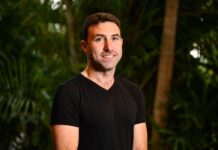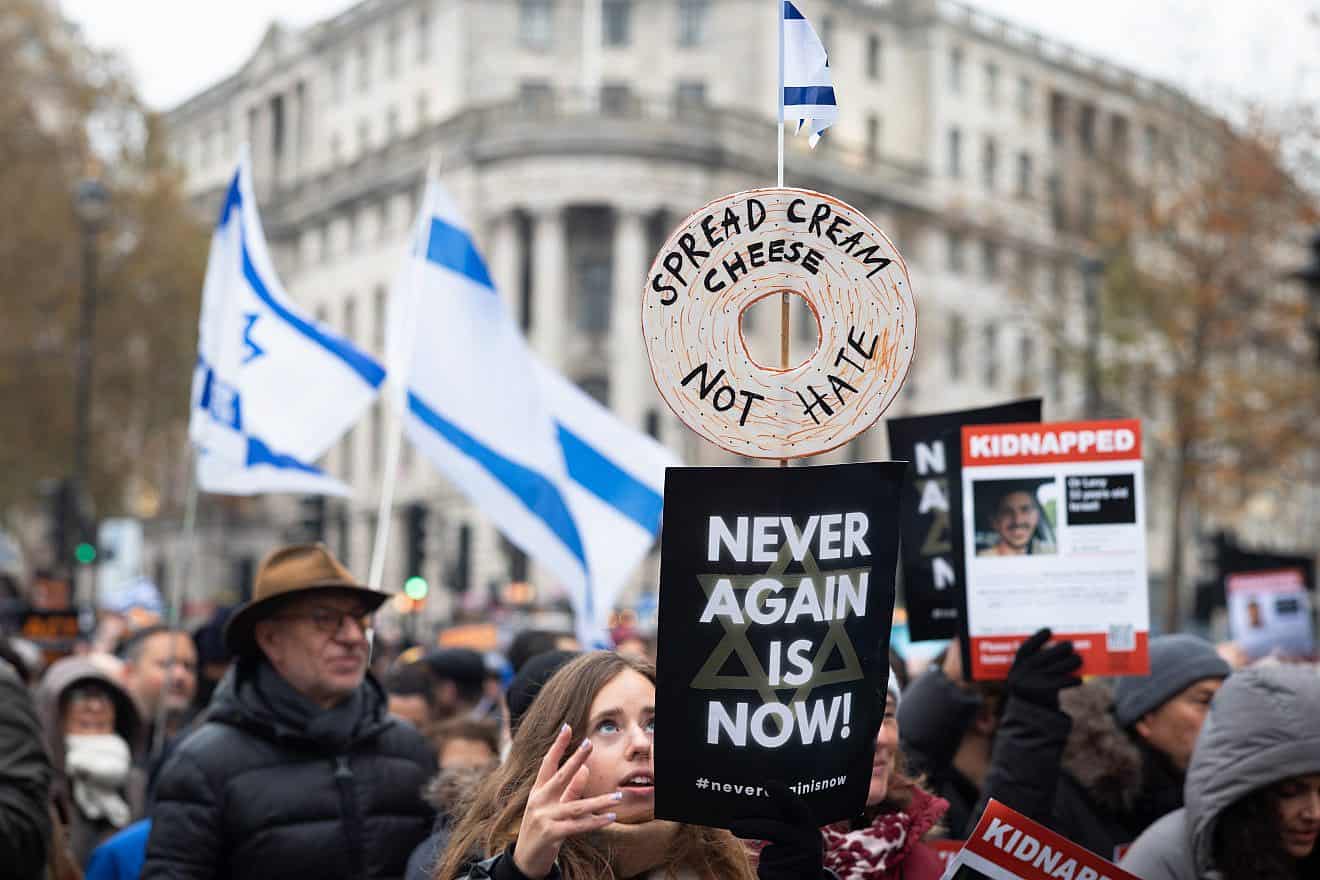My maternal grandmother is Jewish. That makes me Jewish according to Jewish law. As an agnostic—and for many other reasons—I go through peaks and troughs regarding my Jewish identity. But as author David Baddiel has said: Judaism is a race, not a religion. Hamas would kill me for being Jewish. They would not care if I believed in God or not.
In recent months, I have felt a profound sense of pride in my Jewish identity. Thus, I feel I have a duty to share my story.
My grandmother is not only Jewish but a Holocaust survivor. She grew up in Berlin and remembers Kristallnacht. At the age of four, her and her elder brother were evacuated from Nazi Germany to the U.K. via a train sponsored by the Quakers. This is now referred to as the Kindertransport. Sadly, a statue in Berlin honoring the Kindertransport was recently defaced with antisemitic graffiti.
My grandmother has told her story to thousands of schoolchildren, university students and others for her entire life. Her experiences have inspired me to defend myself as a Jew and fight antisemitism.
But for the first time in my life, I am afraid of being Jewish in the U.K. This is not an irrational fear. It is based on indisputable if tragic fact.
American comedian Andrew Schulz described how I’ve been feeling with acute accuracy: ”October 7 happens. … All of a sudden that voice you quieted your whole life… You’re like, is it true? This is a worst-case scenario: We are different; they are out for us; they do hate us; and they hate us because we’re Jewish.”
Expecting support, I instead witnessed condemnation of Jewish people. I felt isolated and different.
October 7
A key reason for the sudden rise in antisemitism is that people refuse to separate Jews from Israel and its military actions. The irony is that my sister and I have supported the Palestinians for years. My uncle who lives in Israel has been a strong opponent of Israeli Prime Minister Benjamin Netanyahu. It didn’t matter.
I was in Turkey on Oct. 7. When my BBC News app notified me that Hamas were firing rockets at Jerusalem and war had begun, my first thought was of my uncle and his wife. I wasn’t keen on Israel rapidly and vigorously retaliating. I wasn’t in favor of one side or the other. I just wanted to know my uncle was safe; a feeling millions felt about their relatives that day. Even then, in my naivete, I never foresaw that people would blame the Jews.
School
The only schools to practice for active attacks are Jewish schools. Every synagogue, every Jewish site I’ve visited, and even Auschwitz have airport-level security.
I see now that antisemitism was always lurking in my past. I went to a bog-standard comprehensive school in Norwich with next to no diversity. During history lessons on the Holocaust, I would be taunted with the claim that, because I am Jewish, my family was shown in some of the gruesome pictures of piles of dead bodies.
I remember boys spraying their deodorant cans on me, pretending to gas me.
Adulthood
Unlike in school, my Jewish experience with others as an adult has been mostly positive. I have had many friends who wanted to learn more about my identity. I value every time this has happened.
Sometimes, however, comments have been made. I still have friends who literally find the word “Jew” funny and some think I do too. I see this as an opportunity to educate. I am mature enough to understand that none of my friends would ever want to hurt me. But recently, such comments have been wearing thin as my Jewish identity has come under unprecedented attack.
Auschwitz
When I was 18, I visited Auschwitz. While driving there, I sadly spotted a swastika sprayed onto a block of flats. My heart sank. When I arrived, the extent of the security measures shocked me. If you visit a concentration camp, it will rattle your moral compass to its core. You leave a different person.
I was most nervous about seeing the gas chambers, the last place on earth you’d expect to experience antisemitism. In the chamber, I heard a group of Spanish people laughing. Again, my heart sank. They took a selfie. In a gas chamber. I felt numb.
One room truly shook me. It was a white room with pencil drawings on the walls. The pictures were clearly drawn by children. They were of houses, families, animals… everything a child would draw. At the exit, a placard simply read: “These drawings were by children, drawn on the train rides to Auschwitz.”
Children and mothers were murdered quickly upon arrival at Auschwitz, as they were physically unsuited for the slave labor at the camp. I remember reading that placard and regurgitating. I will never forget that room.
We then went to a restaurant next to Auschwitz and I couldn’t eat. It would have felt wrong.
The next day in Krakow, we went to a lovely fair. Unfortunately, a man dressed as a stereotypical Jew—big nose, bag of money, curly strands of hair—was posing for pictures with tourists in exchange for money. I was flabbergasted that this was taking place a mere taxi ride from Auschwitz.
The Future
After sharing Instagram posts about recent antisemitic incidents, I was filled with joy at the positive response from my friends, their kindness and, more importantly, their eagerness to learn. Every time I have been knocked down by events, a friend has lifted me up. I am forever grateful.
Now more than ever, I am motivated to educate about antisemitism and empower others to fight it—as my grandparents did.
























